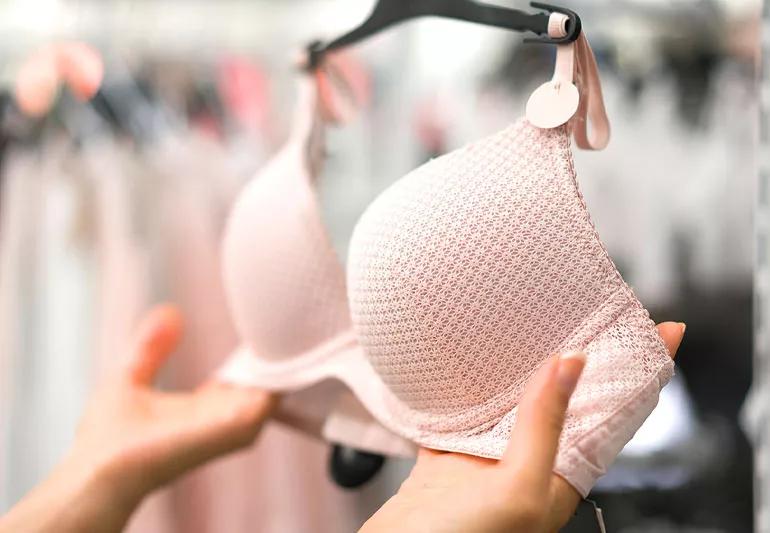It's a common complaint, but don't just ignore it

Image content: This image is available to view online.
View image online (https://assets.clevelandclinic.org/transform/857ec39e-3ad1-4cba-86f5-8fadb0e27cc7/breastPainNewBra-604354596_770x553_jpg)
breast pain new bra
What’s going on when your breasts feel achy, tender or downright uncomfortable? Is it a feature of your menstrual cycle, a sign you need to go bra shopping or something more serious?
Advertisement
Cleveland Clinic is a non-profit academic medical center. Advertising on our site helps support our mission. We do not endorse non-Cleveland Clinic products or services. Policy
The good news is that it’s typically not a sign of something serious. “Most patients who come in with breast tenderness are worried about breast cancer, but that’s actually a less common cause,” says Ob/Gyn Jennifer Grabenstetter, MD. “Most women do not have breast tenderness with breast cancer.”
There are several other explanations for breast pain and discomfort, she says.
The most common source of breast pain is hormonal fluctuations relating to your menstrual cycle. You may notice that your breasts feel more swollen and tender right before your period starts.
“If the breast tenderness occurs in a pattern and affects the breast tissue equally on both sides, then it’s usually less worrisome,” Dr. Grabenstetter says.
Fibrocystic breasts — breasts with more fibrous or lumpy tissue — are especially prone to ongoing breast pain that worsens between ovulation and the start of your period. “This typically affects both breasts equally and, again, isn’t an indicator that anything is wrong,” she says
“There are several possible causes of breast pain that don’t relate to your menstrual cycle,” Dr. Grabenstetter says.
Advertisement
Dr. Grabenstetter offers five tips for easing cyclical breast pain:
Non-cyclical breast pain treatments vary, depending on what’s causing your pain.
If large breasts are the culprit, a better bra or breast reduction may offer relief. Cysts may resolve on their own, or your doctor may need to drain or remove them. Antibiotics typically treat mastitis. The bottom line about breast tenderness? Don’t freak out, but don’t ignore it. “A large percentage of women, about 70%, will have breast pain in their lifetime,” Dr. Grabenstetter notes. “We shouldn’t ignore breast tenderness, even though most of the time it does turn out to be benign. If you’re having persistent pain, speak to your physician.”
Advertisement

Delivered every Tuesday!
Sign up for our Health Essentials emails for expert guidance on nutrition, fitness, sleep, skin care and more
It's a letter about the news!
Learn more about our editorial process.
Advertisement
Massaging your breast tissue can help reduce breastfeeding pain, treat lymphedema and find cancer early
The short answer from a breast health expert
How to be healthier and protect against breast cancer
Hormone changes may lead to sore breasts, but lifestyle changes can help
Head to bed in a bra to reduce breast pain, nipple irritation and stretch marks
Arthritis, migraines and endometriosis are common causes of chronic pain
Finding a neutral position can ease stress on your back, neck and shoulders
Foul language may be beneficial, but it won’t make you smarter
Type 2 diabetes isn’t inevitable with these dietary changes
Applying a hot or cold compress can help with pain
Pump up your iron intake with foods like tuna, tofu and turkey